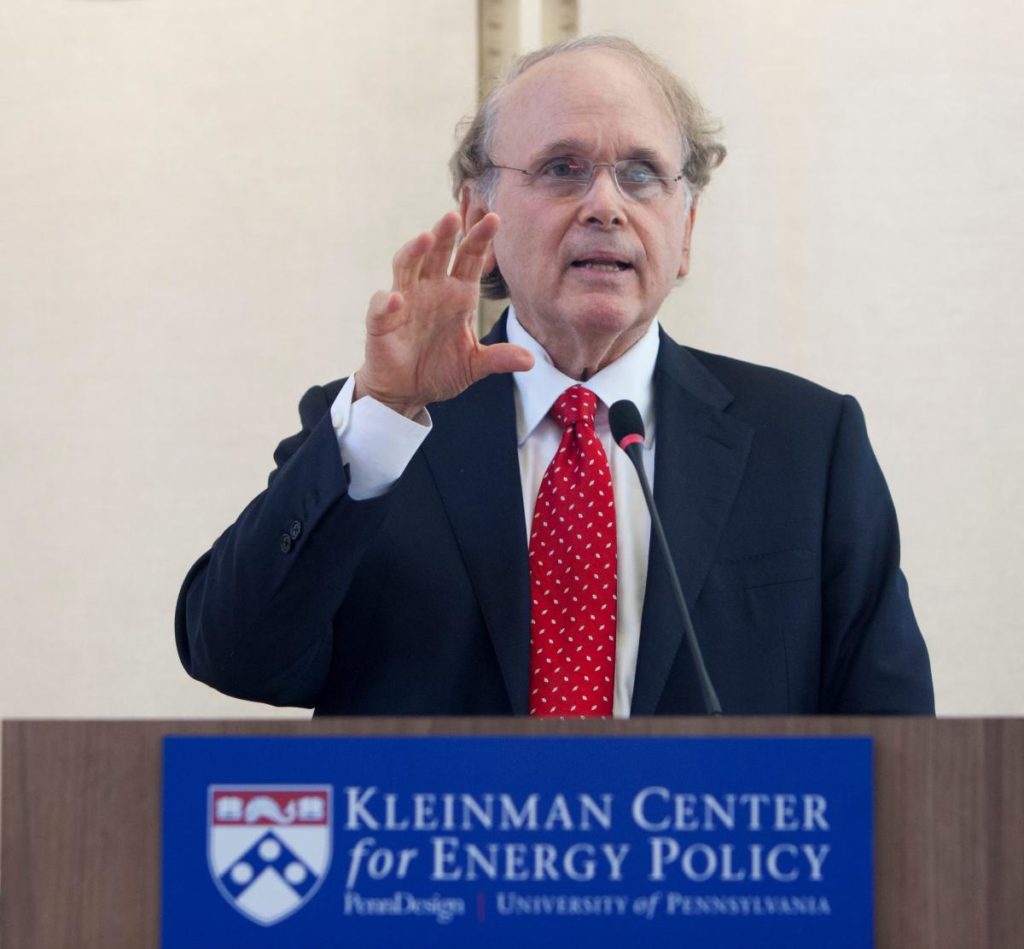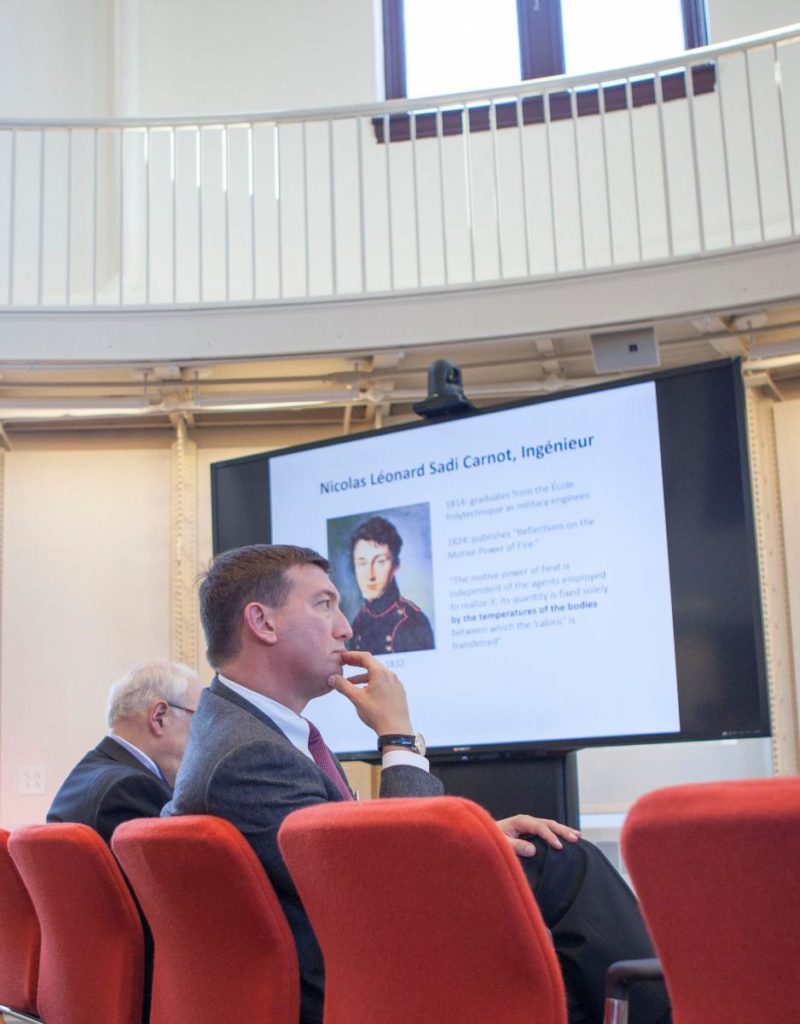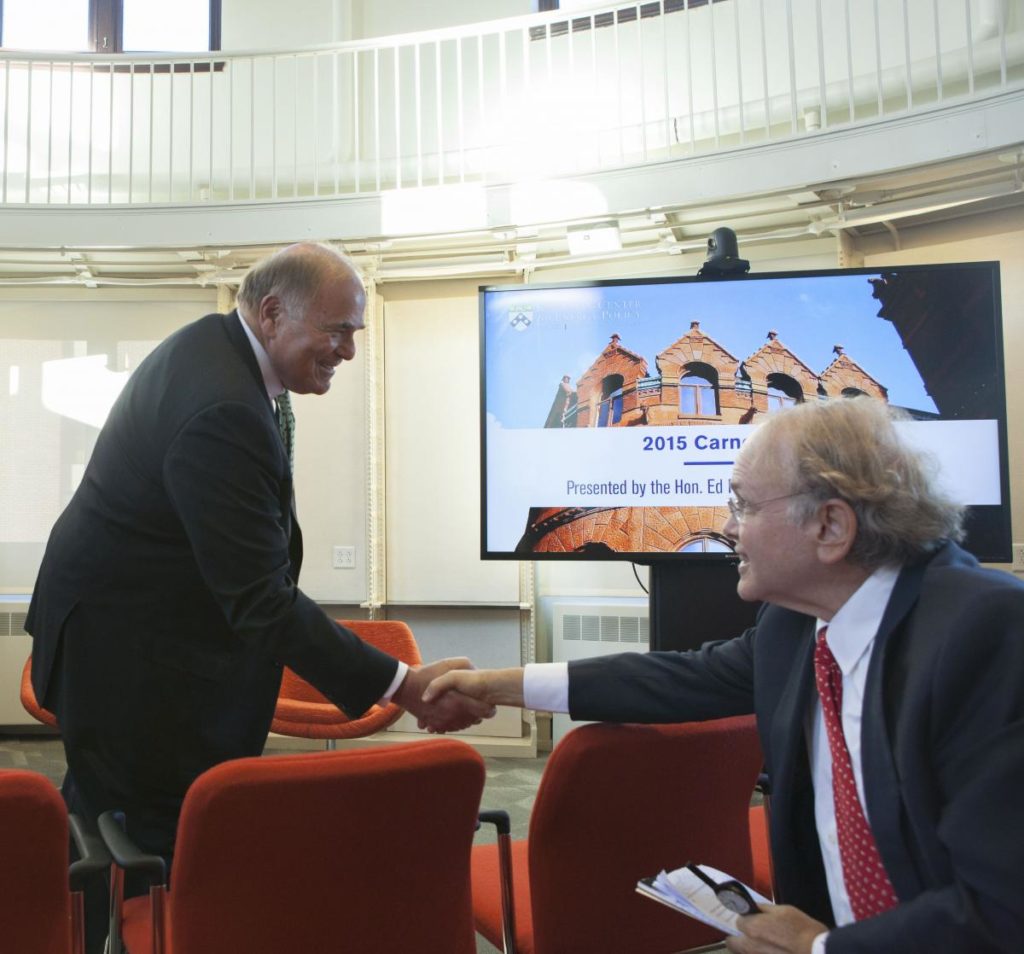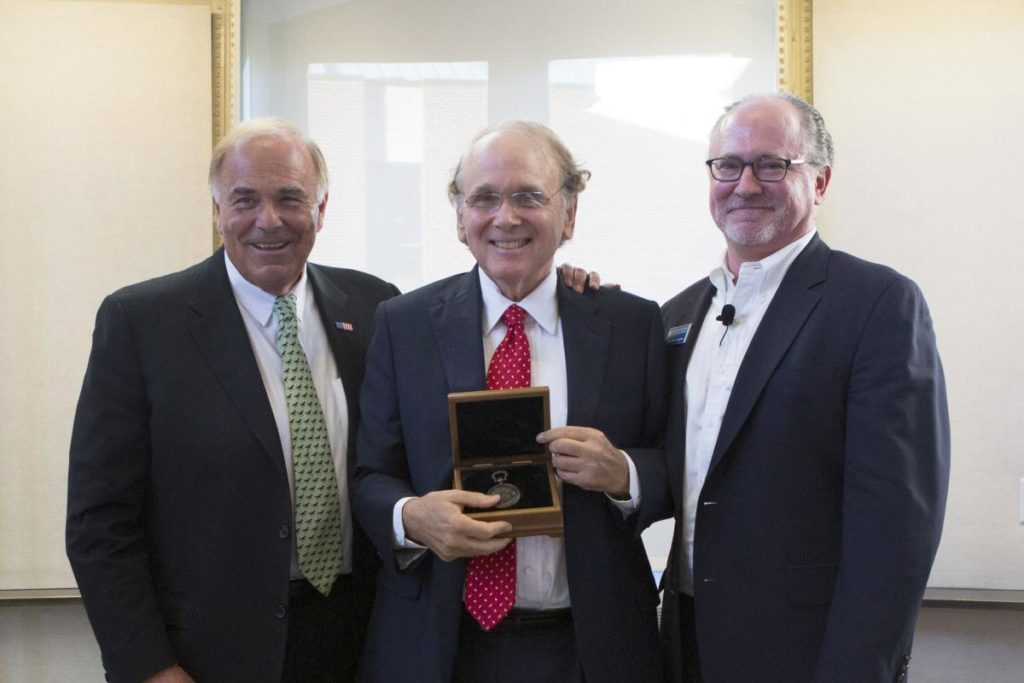Kleinman Center Awards First Carnot Prize at Grand Opening
In October 2015, the Kleinman Center for Energy Policy celebrated its grand opening with an inaugural award ceremony in the newly renovated Energy Forum, located on the fourth floor of the Fisher Fine Arts Library. On behalf of the center, Penn faculty member and former Governor Edward Rendell (C’65) presented the first annual Carnot Prize, for distinguished contributions to energy policy scholarship and practice, to Pulitzer Prize-winning author and energy historian Dr. Daniel Yergin.

The Award Winner
Yergin, who is widely known for his bestseller The Prize: The Epic Quest for Oil, Money and Power, gave a brief history of the energy industry, focusing on what he called the “great transitions” of the past and those of today. “Things take time,” Yergin said, offering cautious advice and noting that energy is not an industry that can be revolutionized overnight. The energy industry, he said, is unique in its scale, ubiquity, and massive capital investment.
Looking to the future of the energy world, Yergin predicted that by 2040, solar and wind power could together make up a quarter of the world’s energy resources and this would be a “big achievement.”

A Tribute to Carnot
Eduardo Glandt, former dean of the School of Engineering and Applied Science, kicked off the evening with a tribute to the award’s namesake: Nicolas Léonard Sadi Carnot, the 17th century French engineer whose theory on heat engine efficiency influenced the Second Law of Thermodynamics. Glandt provided a playful lecture on the history of Carnot and an exploration of the Second Law of Thermodynamics, which he called “a beautiful insight.”
Also referencing Carnot, Yergin discussed the importance of energy policy from a security perspective. He explained that at the time of Carnot’s insight into thermodynamics, Napoleon was losing wars in Europe in part because of France’s inability to adapt to the steam engine revolution.

Pennsylvania and Beyond
Rendell discussed the dramatic changes to Pennsylvania’s energy landscape over the past decade. Reflecting on his time in office, the former Governor noted that when he was first elected, Pennsylvania was a net energy importer and now—a few years later—is one of the greatest energy producing states in the nation. The chemical industry, once a huge employer in the area, had been near collapse before the launch of the shale revolution. Now it is a vibrant member of the Pennsylvania business community.
Rendell praised Yergin for his insight into the link between energy and national security, making Yergin “the most prominent voice in energy policy for the past 40 years.” He also shared optimism that the Kleinman Center would serve as “a resource for energy policy makers throughout the nation.”
The event underscored two conflicting realities: the need to adapt to changing energy landscapes for economic and security purposes, and the extreme difficulty in revolutionizing the energy industry. As the Kleinman officially opens its doors, these are the challenges its students, researchers, and energy leaders will continue to discuss.

The Kleinman Center for Energy Policy was established by a generous gift to the School of Design from Scott (C’94 and W’94) and Wendy Kleinman. The Center advances energy policy by creating conditions for stakeholders to debate diverse viewpoints, explore options, and develop agendas for decision and action.
Photography by Jessica Kourkounis
